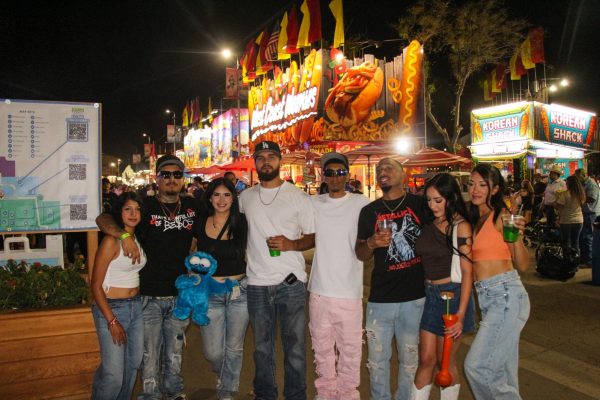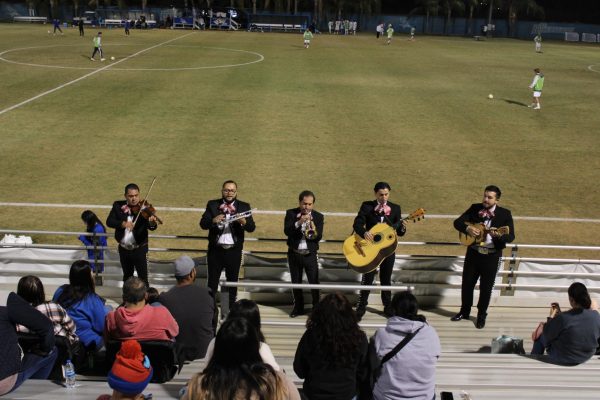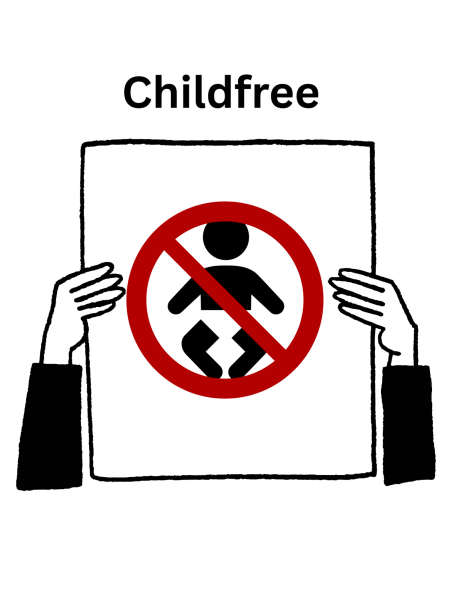Students share ‘The Afro Experience’ within the LGBTQ+ community
March 8, 2019
By Samantha Cook
Reporter
Black History Month came to a close with The Afro Experience: LGBTQ+ event on Feb. 27. Though small in numbers, the event attracted great participation among its audience members. The attendance made for a highly personal experience filled with student engagement, creating a conversation instead of a lecture.
Getting Started
The Afro Experience began with an icebreaker game that encouraged the audience to get involved while considering how and where members of the LGBTQ+ community may feel safe or unsafe. Audience members were given various places and situations around campus and within the community and asked if they believed LGBTQ+ members would feel ‘safe,’ ‘maybe safe,’ or ‘unsafe.’ The participants were then invited to weigh in on why they thought some situations were safe or unsafe. Fortunately, many of the students believed CSUB to be a safe and inclusive place for students.
Introduction
Following the icebreakers, assistant professor for interdisciplinary studies Tracey M. Salisbury, introduced the event with a history of the LGBTQ+ movement within the African-American community. She discussed the way in which African-Americans were treated as secondary citizens in the conversation of civil rights for the LGBTQ+ community.
“People of color created safe spaces for themselves,” she said.
Salisbury went on to give examples of these spaces, including the drag community as well as the musical scene. These spaces allowed and continue to allow African-Americans to express their identities, cultures and struggles.
“Our history is here. Our contribution is here. Our continuing contribution is here,” Salisbury added.
Panel Discussion
The main feature of the event was a panel discussion moderated by Salisbury. The student speakers were Xocee Smith, a senior theatre and psychology double-major, Aliyah Lakes, senior communications major, Morayo Olujumu, a business marketing and business management double-major and president of the African Student Association, Jordan Parks, a junior computer information systems major, and Mia Lopez, a senior sociology major.
Speakers shared their coming-out stories, some telling of the love and acceptance they received, while others recalled their journeys with teary eyes.
Parks talked about how he felt support and acceptance from his friends when he came out.
“What if they judge me?” he said.
“I can still feel the pain I felt when I was 14 when I came out to my mom,” Lakes said. Lakes described her experience as “an emotional rollercoaster.”
Lakes concluded her story. “I am grateful to be where I have been. I am blessed to be where I am now. And I am optimistic to see where I will go,” she said.
The student speakers shared their experiences of lack of acceptance within the church, and the animosity that the African-American community harbors toward its LGBTQ+ community, with practices such as “praying the gay away,” which strips its youth of their identities. Their sexual orientations were often dismissed by family members, with partners being referred to as “friends” or “best friends,” but not recognized as lovers. While the students spoke about how their family members learned to accept and support them, many African-American churches and church officials still fail to do so.
Identity and expression were also discussed among the panel. “At some point I knew I really had to own who I was,” Lakes said. She talked about her expression of her identity and said, “I think people confuse masculinity and femininity with labels.”
Other panel members contributed to this discussion, speaking of times where others questioned their sexual orientations based on their interests, expressions of identity and the ways they present themselves. “I’ve always identified as more feminine…that’s me,” Lopez said.
“Anyone can be gay, straight, or lesbian. There’s no look to it,” said Lopez.
In the conversation of labels, Smith talked about how it is okay to wear what you feel most comfortable in, regardless of what is considered masculine or feminine. “I don’t need a label because I know who I am and who I like,” she said.
The discussion concluded with the question of what societal changes need to be made to create more inclusivity for the African-American LGBTQ+ community. Speakers called the African-American community to offer support and acceptance to all of everyone, including those who are apart of the LGBTQ+ community.
“You cannot label yourself as ‘pro-black’ and be anti-LGBT,” Olujumu said. She added that being “pro-black” means advocating for every member of the African-American community, regardless of identity, sexual orientation, religion, etc.
Salisbury emphasized the importance of allowing African-Americans to be entirely themselves. “We cannot ask any black person to suppress any part of their self,” she said.
Smith culminated the event when she said, “We are all here together, regardless of your race and regardless of who you like.”







